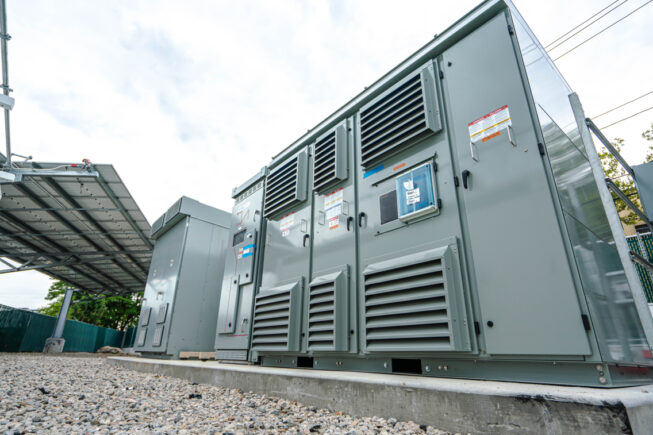
Rhode Island Governor Daniel McKee has signed the 2024 Energy Storage Systems Act into law, establishing energy storage capacity benchmarks for Rhode Island’s power grid.
The legislation (2024-S 2499A, 2024-H 7811aa), sponsored by Senate Judiciary Committee Chairwoman Dawn Euer and Representative Arthur Handy, also directs the Rhode Island Infrastructure Bank and the Office of Energy Resources to develop and fund programs to meet the state’s storage goals.
“Rhode Island is a leader in our commitment to ending our reliance on polluting carbon-emitting energy. Keeping that commitment means we need to innovate and we need to do it at speed,” said Chairwoman Euer (D-District 13, Newport, Jamestown).
“Moving to renewable electricity means we are going to need the structures — both physical and regulatory — to store energy. This bill sets concrete goals and action plans to build a resilient grid that can accommodate the green energy transition that is happening now. This is just one of many actions we will need to meet our diverse energy goals and ensure that Rhode Island keeps its commitment to a carbon-neutral future.”
The law also requires the Public Utilities Commission (PUC) to establish a framework for adopting electric rate tariffs to apply to energy storage systems connected to the electric grid by September 1, 2024.
At least every three years, the PUC will also be required to conduct a market survey of storage technologies and how they may meet the needs of Rhode Island’s power system. This will ensure that Rhode Island stays current with the latest innovations in the fast-moving field of energy storage systems, per the Rhode Island General Assembly
“We need energy storage to take full advantage of all the clean, renewable energy that will be coming online as we reach toward our climate goals,” insisted Representative Handy (D-Dist. 18, Cranston). “This legislation is critical to both take advantage of the renewable energy we have to bring online and to build a sustainable grid in the face of severe storms and other effects of climate change.”
The passage of the Energy Storage Systems Act puts Rhode Island’s energy system in a strengthened position, contends national trade association Advanced Energy United.
“Energy storage is flexible, reliable, affordable, and will be a game changer for Rhode Island’s power grid,” said Kat Burnham, AEU’s Rhode Island state lead. “Investing in energy storage technologies will drive economic development and job creation in the clean energy sector.”
Key features of the act include:
Storage targets: Rhode Island sets goals of 90 megawatts of energy storage by 2026, 195 megawatts by 2028, and 600 megawatts by 2033.
Infrastructure programs: The Rhode Island Infrastructure Bank will develop programs to facilitate energy storage adoption across all sectors.
Storage procurements: Enables the Rhode Island Public Utility Commission to require distribution companies to procure cost-effective storage systems.
“The 2024 Energy Storage Systems Act isn’t just about technology—it’s about people. It’s about creating good, steady jobs and making sure our communities have power when they need it,” Senator Euer stated. “Rhode Island is committed to a clean energy future and we’re showing how it’s done.”
“Especially with the growing threat of extreme weather, this legislation will ensure we have the power we need, when we need it,” added Rep. Handy. “We’re talking about dependable power, more jobs, and a cleaner environment for everyone. It’s a big step forward for our state.”